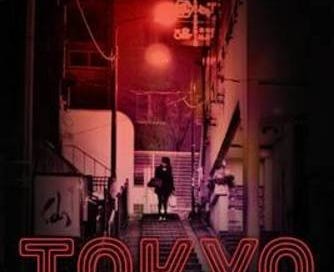Radiation Ruling The Nation
There’s an ongoing discussion in the Japanese media about what kind of cultural responses to the March 11th 2011 earthquake, tsunami and meltdown triple disaster are permissible. While excellent documentaries and non-fiction books began appearing almost immediately, fiction writers and screen writers have been more circumspect. When filmmaker Sion Sono made two films – the first a family drama, the second near-future speculation – directly tackling the nuclear meltdown at Fukushima, critics and below-the-line commentators tore him apart. Yet March 11th 2011 was a turning point for Japan. Whether or not it’s too soon to fictionalise a catastrophe that killed over 15000 people, it’s become impossible to write honestly about Japan without acknowledging the existential crisis that earthquake caused.
Scottish publishers have been at the forefront of post-3/11 literature in English about Japan. First, Canongate brought out Ruth Ozeki’s A Tale For The Time Being and now Cargo have published Nicholas Hogg’s third novel, Tokyo.
Considering the fear and paranoia that hung around the streets of Tokyo for months afterwards, considering the misinformation and doublespeak the government and a neutered media poured into a public space starved of answers, perhaps noir was always going to be the genre that best suited the moment. And Tokyo is noir at its unsettling best. Hogg’s stripped down prose captures the terrifying disconnect between appearance and reality that the public in Japan faced when reassurances were shown to be guesses and advice shown to be lies. Post-3/11, the knowledge that destructive horror can be unleashed any second is never far from consciousness. It’s against this dark background that Hogg tells his story.
Ben Monroe is based at the University of Tokyo. He is a British expert on cults and group behaviour, back in Japan for a second time with a trail of emotional baggage. His teenage daughter, Mazzy, has transferred from San Diego to Tokyo International School for a semester and isn’t happy about it. Neither is his ex-wife, who sends her a Geiger counter. But radiation is the least of her worries. Koji, the Japanese man Mazzy exchanged small talk with on the flight over is a cult survivor who takes her Californian pleasantries as an invitation to stalk her. Mazzy’s arrival highlights Ben’s own loneliness and he begins searching the sleazy streets and hostess bars for a former lover, Kozue.
Like Japan, the characters are searching for a connection to a lost past. Mazzy spends hours on Skype to her mother or in karaoke booths with other foreign friends. Ben relives every detail of his affair with Kozue, spending ever increasing amounts of money to get information from people who know how to extract value from desperation. Koji is searching for the spiritual centre of his life, a space once filled by his grandmother and his cult leader, both now dead. Their interweaving narratives tighten to a dramatic and surprising climax – it wouldn’t be noir without a good twist or three – but even in post-3/11 Tokyo, too often a place of danger and despair, there is always hope.
Comparisons with David Peace are inevitable, but while his as yet unfinished Tokyo trilogy is firmly rooted in a distant Japan, Hogg has moved into new and fertile territory. Twenty-First Century Japan, a country wracked with uncertainties, the economy into its third decade of stagnation and overtaken by China. Threatened by North Korea, a population in decline and moving ever further to the Right, the next natural disaster inevitably around the corner. Tokyo is a marker indicating a new direction of travel. Like the country itself, literature about Japan has entered a new era.




